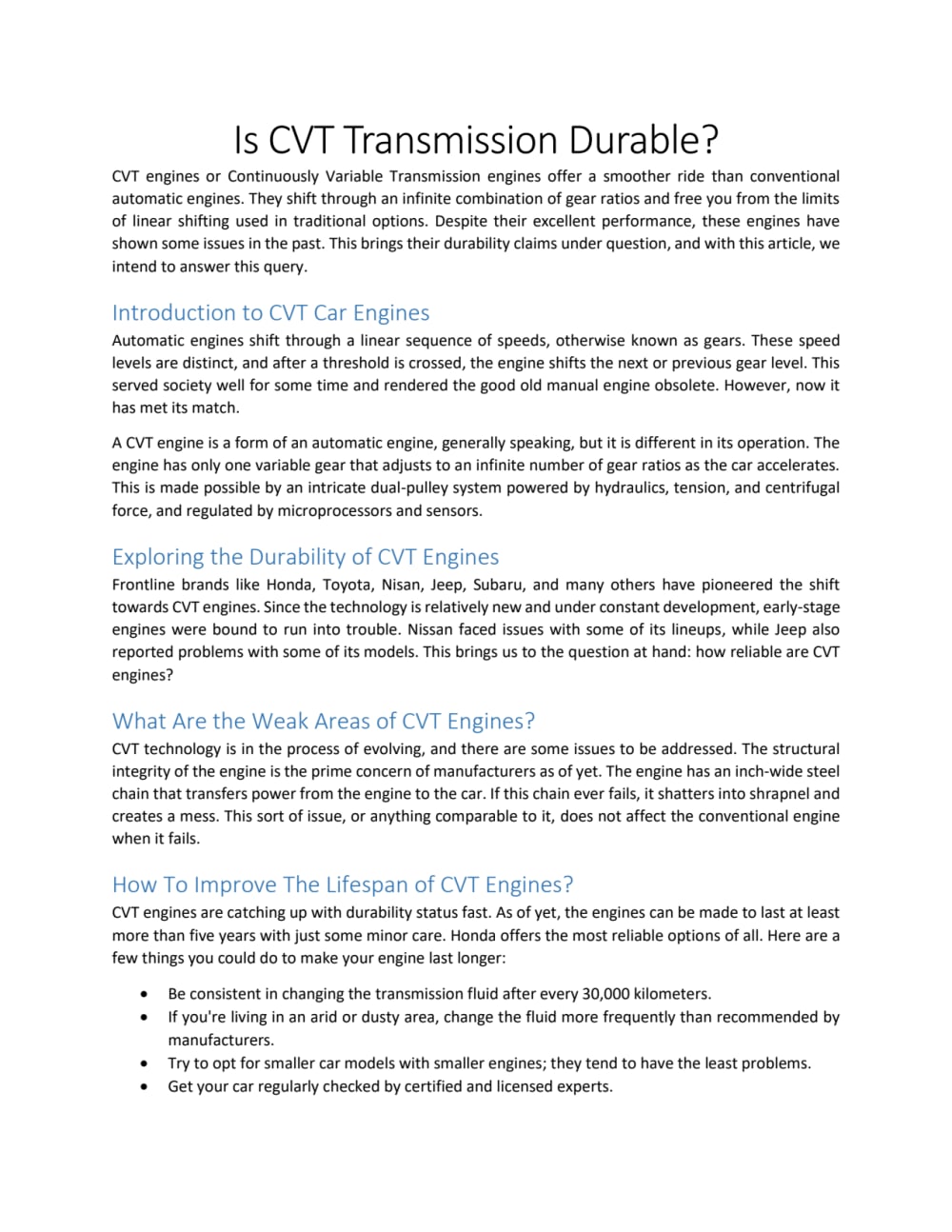As an Amazon Associate, I earn from qualifying purchases at no extra cost to you.
Does Changing Transmission Fluid Boost Shifting Performance?
Changing transmission fluid does help shifting by providing smoother gear transitions and preventing damage to transmission components. As a vital maintenance task for your vehicle, regular transmission fluid changes ensure optimal performance and extend the lifespan of your transmission.
Neglecting this service can lead to rough shifting, slipping gears, and transmission failure. Therefore, by changing the transmission fluid at recommended intervals, you can improve the overall shifting experience and protect your transmission from potential damage.

Credit: www.amazon.com
Factors Affecting Shifting Performance
Changing transmission fluid can have a significant impact on shifting performance. Regular fluid changes help maintain smooth gear changes, reduce friction and heat build-up, and prolong the lifespan of the transmission.
Condition Of Transmission Fluid
The condition of the transmission fluid plays a crucial role in the smooth shifting performance of your vehicle. Over time, transmission fluid can become contaminated with debris, dirt, and other impurities, affecting its ability to provide proper lubrication and hydraulic pressure. Dirty or degraded transmission fluid can lead to sluggish or erratic shifting, causing inconvenience and potentially damaging the transmission system.
Quality Of Transmission Fluid
The quality of the transmission fluid you use can greatly impact the shifting performance of your vehicle. Using high-quality transmission fluid that meets the recommended specifications and standards ensures optimal lubrication and cooling of the transmission components. High-quality fluid is formulated to withstand high temperatures and heavy loads, providing smoother and more precise shifts. On the other hand, using low-quality or generic transmission fluid may result in inadequate lubrication and subpar performance.
Type Of Transmission Fluid
The type of transmission fluid required by your vehicle can also influence its shifting performance. Each type of transmission fluid is designed for specific transmission systems, and using the wrong type can lead to poor shifting and potential damage. There are different types of transmission fluids, such as Dexron, Mercon, and ATF+4, each formulated to meet the unique requirements of different vehicles and transmission designs. Using the right type of fluid ensures optimal compatibility and performance, promoting smooth and consistent shifting.

Credit: www.upwork.com
Benefits Of Changing Transmission Fluid
Changing the transmission fluid in your vehicle is an essential maintenance task that often goes overlooked. However, regular transmission fluid changes can have a significant impact on the overall performance and lifespan of your vehicle’s transmission. In this article, we will explore the benefits of changing transmission fluid, including improved shifting performance, extended transmission life, and prevention of transmission damage.
Improved Shifting Performance
Regularly changing your transmission fluid plays a key role in maintaining optimal shifting performance. Over time, the fluid can become contaminated with dirt, debris, and metal particles. This contamination can hinder the smooth operation of the transmission, causing difficulties in shifting gears. By changing the transmission fluid at recommended intervals, you can ensure the fluid remains clean and free from contaminants, allowing for smoother and more precise shifting.
Extended Transmission Life
By changing the transmission fluid in a timely manner, you can help extend the overall lifespan of your vehicle’s transmission. The fluid acts as a lubricant, providing the necessary lubrication to various components within the transmission. Over time, the fluid breaks down and loses its ability to lubricate effectively, leading to increased friction and wear. Regularly changing the fluid helps to minimize friction and reduce wear, ultimately prolonging the life of the transmission.
Prevention Of Transmission Damage
One of the most significant benefits of changing the transmission fluid is the prevention of transmission damage. As mentioned earlier, contaminated fluid can cause issues with shifting performance. However, it can also lead to more severe damage if left unaddressed. Dirty or degraded fluid can lead to increased heat, inadequate lubrication, and excessive wear on transmission components. By changing the fluid regularly, you can prevent these issues and maintain the overall health of your transmission.

Credit: run-rite.com
Frequently Asked Questions For Does Changing Transmission Fluid Help Shifting
Does Transmission Shift Better After Fluid Change?
Changing the transmission fluid can lead to smoother shifting. Fresh fluid helps maintain proper lubrication and reduces clutch slippage. This can improve the overall performance of the transmission.
Can Dirty Transmission Fluid Cause Shifting Problems?
Dirty transmission fluid can indeed cause shifting problems. The contamination of the fluid could lead to a lack of lubrication, causing friction and overheating. This can result in delayed or rough gear shifts, slipping gears, or even complete transmission failure.
Regular fluid changes and maintenance are necessary to prevent these issues.
Can Changing Transmission Fluid Fix Hard Shifting?
Changing transmission fluid can help resolve hard shifting issues in some cases. Old or contaminated fluid can contribute to the problem, so replacing it with fresh fluid can improve the shifting performance. However, if the issue persists after changing the fluid, there may be other underlying problems causing the hard shifting.
Does Replacing Transmission Fluid Fix Slipping?
Replacing transmission fluid can potentially fix slipping issues in some cases. The fresh fluid helps maintain proper lubrication and reduces wear, allowing the transmission to operate more efficiently. However, it may not always solve the problem, and further investigation by a professional is recommended to pinpoint the exact cause.
Can Changing Transmission Fluid Improve Shifting Performance?
Changing transmission fluid regularly is essential as it helps to maintain optimal shifting performance and prolong the life of your transmission.
How Often Should I Change My Transmission Fluid To Improve Shifting?
To improve shifting, it is recommended to change your transmission fluid every 30,000 to 60,000 miles or as per your vehicle manufacturer’s guidelines.
What Happens If I Don’t Change My Transmission Fluid For A Long Time?
Neglecting to change transmission fluid can lead to poor shifting performance, increased wear and tear, and eventually transmission failure.
Does Changing Transmission Fluid Help With Smooth Shifting?
Yes, changing transmission fluid can help achieve smooth shifting by ensuring proper lubrication, reducing friction, and maintaining the integrity of internal components.
Conclusion
Overall, changing transmission fluid can greatly improve shifting in your vehicle. Regular maintenance and fluid changes ensure that your transmission remains clean and well-lubricated, preventing wear and tear on its components. This leads to smoother shifting and a longer lifespan for your transmission.
By prioritizing this simple yet crucial task, you can enhance the performance and efficiency of your vehicle while also avoiding costly repairs down the road.


